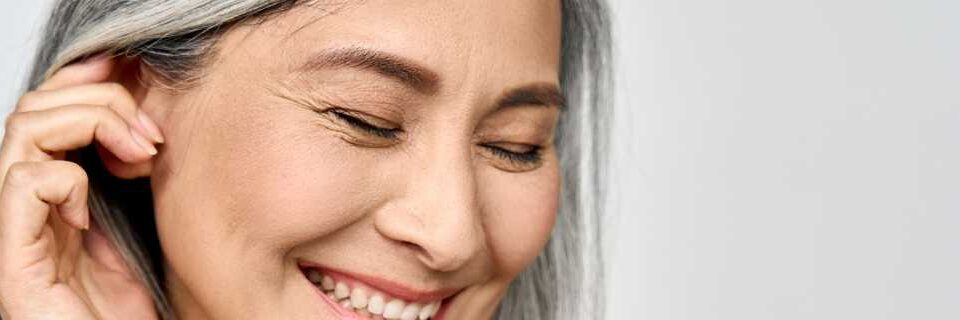
Transforming to a Growth Mindset with Self-Hypnosis

Sports Performance Hypnosis: What You Need to Know
Table of Contents
- 1. What Is Menopause?
- 2. What Are the Symptoms?
- 3. Does Exercise Help?
- 4. What Does the Research Show?
- 5. What Kind of Exercise Is Best?
- 6. Do Other Activities Help?
- 7. Which Foods Help With Menopause Symptoms?
- 8. Which Foods Should be Avoided?
- 9. Are There Remedies for Hot Flashes?
- 10. Can Hypnotherapy Relieve Symptoms?
- 11. Is Self-Hypnosis a Good Treatment for Menopause?
- Hypnosis for Menopause
If you are a female of a certain age, you probably have questions about menopause. When does it begin? How long does it last? What are the symptoms? How can you make it easier? Every woman’s journey is unique, but knowing what to expect is half the battle. Stress management, exercise, and alternative healing modalities may help too.
1. What Is Menopause?
The last menstrual period marks the beginning of menopause, and one year without periods confirms the diagnosis. Before this takes place, the body goes through a series of gradual changes. Called perimenopause, this transition signals the end of the reproductive years. According to the International Menopause Society, the average age for menopause is around 51.5 years.
2. What Are the Symptoms?
During perimenopause, estrogen levels fluctuate and then fall. Periods become erratic, and women experience symptoms like these:
- Hot flashes or night sweats
- Tender breasts
- Fatigue
- Worsening PMS (premenstrual syndrome)
- Irregular periods or heavy bleeding
- Reduced sex drive due to dryness
- Insomnia or sleep problems
- Frequent need to urinate or leaking when sneezing or coughing
- Irritability and mood swings
- Weight gain caused by slowing metabolism
- Dry skin or thinning hair
3. Does Exercise Help?
You can maintain a good quality of life after menopause by taking care of yourself physically and emotionally. A well-planned exercise program improves bone density levels, promotes good mental health, and fights weight gain. The Center for Disease Control and Prevention (CDC) recommends at least 75 minutes of vigorous or 150 minutes of moderate aerobic exercise per week. Physical activity improves balance and coordination, strengthens muscle mass, and alleviates anxiety and depression. If you exercise regularly, you are less likely to need hormone replacement treatment.
4. What Does the Research Show?
Besides controlling weight and bone mass, studies show that physical activity increases respiratory function and reduces low back pain. By curbing the domino effects of hormone loss, it may reduce the frequency of hot flashes and prevent health problems caused by declining estrogen. Exercise also lowers harmful LDL (how density lipoprotein) cholesterol levels and increases healthy HDL (high-density lipoprotein) and triglyceride levels, reducing the risk of heart attack and stroke.
5. What Kind of Exercise Is Best?
Researchers recommend these types of activities:
- High-impact exercises for building and maintaining bone mass and density: high-impact aerobics, dancing, jogging, running, climbing stairs, jumping rope, volleyball, basketball, tennis or gymnastics
- Low-impact, weight-bearing exercises: walking outside or on a treadmill, elliptical training, low-impact aerobics and stair-step machines
- Strength or resistance training with elastic bands, weight -lifting machines or natural resistance; non-weight-bearing exercises, such as swimming, cycling and stretching

6. Do Other Activities Help?
An effective workout routine alternates days for resistance and weight-bearing exercises. Additional days may include activities like walking, cycling, dancing, deep breathing or stretching. Biofeedback, cognitive behavioral therapy, and other complementary practices may help some women.
7. Which Foods Help With Menopause Symptoms?
Some foods lower the odds of symptoms like hot flashes, low bone density, and poor sleep. Doctors recommend dairy products, whole grains, healthy fats, fruits and vegetables, foods that contain phytoestrogens, and protein.
8. Which Foods Should be Avoided?
Avoid foods that are high in processed carbohydrates or have added sugar, spicy foods, or those with a lot of salt. Beverages containing alcohol or caffeine may worsen menopause symptoms.
9. Are There Remedies for Hot Flashes?
For some women, hormone replacement or medications help. For others, a balanced lifestyle and home remedies, such as soy isoflavones or black cohosh, do the trick. Anything that cools the body minimizes the discomfort of hot flashes.
10. Can Hypnotherapy Relieve Symptoms?
In a U.S. study at Baylor University, menopausal participants experienced up to a 72% reduction in hot flashes, a success rate superior to some non-hormone medications. Hypnosis can encourage better sleep, reduce stress, and improve mood.
11. Is Self-Hypnosis a Good Treatment for Menopause?
Ongoing research at Baylor found self-hypnosis effective for improving the quality of sleep in menopausal women. When they focused on cooling images, women were able to lower the effects of hot flashes and prevent night sweats. The ability to reduce menopausal symptoms with self-hypnosis means women can get relief without taking potentially dangerous medications. It also offers new opportunities to treat menopause and other conditions safely and affordably, giving women more control over their own well-being.
Hypnosis for Menopause
Learn more about using hypnosis for women’s health by visiting a hypnotherapist near you, or download an app with audio for self-hypnosis. At UpNow, we offer programs on women’s health, better sleep, and much more. Start with a free trial, and get rid of faulty beliefs that hold you back from the life you want.
UpNow Health only uses high-quality sources, including peer-reviewed articles, to support the facts within our articles. All our articles are reviewed by experts to ensure that our content is accurate, helpful, and trustworthy.
1. How much physical activity do adults need? Centers for Disease Control and Prevention. https://www.cdc.gov/physicalactivity/basics/adults/index.htm. Accessed 6th June 2022.
2. Menopause basics. Office on Women’s Health. Link. Accessed June 2022.
3. Menopause symptoms and relief. Office on Women’s Health. https://www.womenshealth.gov/menopause/menopause-symptoms-and-relief. Accessed June 2022.
4. Mishra, N., Mishra, V. N., & Devanshi (2011). Exercise beyond menopause: Dos and Don’ts. Journal of mid-life health, 2(2), 51–56. https://doi.org/10.4103/0976-7800.92524
5. Elkins, G., Johnson, A., Fisher, W., Sliwinski, J., & Keith, T. (2013). A pilot investigation of guided self-hypnosis in the treatment of hot flashes among postmenopausal women. The International journal of clinical and experimental hypnosis, 61(3), 342–350. https://doi.org/10.1080/00207144.2013.784112
6. Roberts, R. L., Rhodes, J. R., & Elkins, G. R. (2021). Effect of Hypnosis on Anxiety: Results from a Randomized Controlled Trial with Women in Postmenopause. Journal of clinical psychology in medical settings, 28(4), 868–881. https://doi.org/10.1007/s10880-021-09810-3
7. Otte, J. L., Carpenter, J. S., Roberts, L., & Elkins, G. R. (2020). Self-Hypnosis for Sleep Disturbances in Menopausal Women. Journal of women’s health (2002), 29(3), 461–463. https://doi.org/10.1089/jwh.2020.8327
8. he North American Menopause Society. Hot Flashes. (Link). Accessed June 2022.












